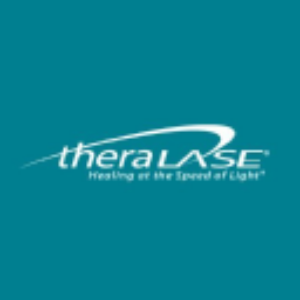University of British Columbia Launched as Newest Clinical Study Site for Phase II Non-Muscle Invasive Bladder Cancer Clinical Study
Rhea-AI Summary
Theralase Technologies has received ethics approval from University of British Columbia to initiate a Pivotal Phase II clinical study targeting Non-Muscle Invasive Bladder Cancer (NMIBC). This study will enroll approximately 100 patients who are BCG-Unresponsive or intolerant to BCG Therapy. Currently, 14 patients have been treated across 5 clinical sites in Canada. FDA Fast Track Designation may expedite drug-device development. The primary endpoint focuses on the efficacy defined by Complete Response (CR).
Positive
- FDA Fast Track Designation received for expedited drug-device development.
- Approval from UBC REB allows for the commencement of Study II.
- Pivotal Phase II study aims to enroll approximately 100 patients.
- Current treatment of 14 patients showcases early engagement in clinical trials.
Negative
- None.
News Market Reaction 1 Alert
On the day this news was published, TLTFF declined 6.25%, reflecting a notable negative market reaction.
Data tracked by StockTitan Argus on the day of publication.
TORONTO, ON / ACCESSWIRE / December 7, 2020 / Theralase® Technologies Inc. ("Theralase" or the "Company") (TSXV:TLT)(OTCQB:TLTFF), a clinical stage pharmaceutical company focused on the research and development of light activated Photo Dynamic Compounds ("PDC") and their associated drug formulations used to safely and effectively destroy various cancers, bacteria and viruses announced today that the University of British Columbia ("UBC") Review Ethics Board ("REB") has approved the commencement of a Pivotal Phase II Non-Muscle Invasive Bladder Cancer ("NMIBC") Clinical Study to enroll and treat patients who present with Carcinoma In-Situ ("CIS") and who are considered Bacillus Calmette Guerin("BCG")-Unresponsive or are intolerant to BCG Therapy ("Study II").
The University of British Columbia is a global center for teaching, learning and research, consistently ranked among the top 20 public universities in the world and recently recognized as North America's most international university.
To date 14 patients have been treated in Study II. With the addition of UBC, the Company now has 5 sites open for patient enrollment and treatment in Canada. The Company is in advanced discussions to launch a number of U.S. based clinical study sites in 4Q2020, subject to the United States economy recovering from the COVID-19 pandemic. The U.S. based Trial Management Organization plans to launch 4 to 5 clinical study sites in 4Q2020 and commence Study II patient enrollment and treatment as early as 1Q2021.
Dr. Peter Black, MD, FRCSC, a Urologic Oncologist at Vancouver General Hospital, a Research Scientist at the Vancouver Prostate Centre, and a Professor in the Department of Urologic Sciences at the University of British Columbia stated "I think this is a great opportunity for patients to gain access to a promising new technology and treatment that is easy to deliver and very patient-friendly. We are delighted to be able to offer it to patients in British Columbia."
Shawn Shirazi PhD, Chief Executive Officer, Theralase®, stated, "We are extremely pleased that the UBC, REB provided approval to proceed with Study II. We are excited that our recent FDA Fast Track Designation status for Study II could lead to the expedited development of this drug-device combination for NMIBC patients. The TLD-1433 technology represents a paradigm shift in medical technology and an advanced approach to treat NMIBC."
About Study II
Study II utilizes the Therapeutic Dose (0.70 mg/cm2) of TLD-1433 and is focused on the enrollment and treatment of approximately 100 BCG-Unresponsive NMIBC CIS patients in up to 20 clinical study sites located in Canada and the US.
Study II has a:
- Primary endpoint of efficacy (defined by Complete Response ("CR") at any point in time
- Secondary endpoint of duration of CR at 360 days post-initial CR (approximately 450 days post initial Study treatment, assuming CR is achieved at the 90 day assessment)
- Tertiary endpoint of safety measured by incidence and severity of Adverse Events ("AEs") grade 4 or higher that do not resolve within 450 days post-initial treatment
The FDA, in its 2018 guidance to industry has stated that, "For single-arm trials of patients with BCG-unresponsive disease, the FDA defines a CR as at least one of the following:
- Negative cystoscopy and negative (including atypical) urine cytology
- Positive cystoscopy with biopsy-proven benign or low-grade NMIBC and negative cytology
- For intravesical therapies without systemic toxicity, the FDA includes, in the definition of a CR, negative cystoscopy with malignant urine cytology, if cancer is found in the upper tract or prostatic urethra and random bladder biopsies are negative.
Intravesical instillation does not deliver the investigational drug to the upper tract or prostatic urethra; therefore, the development of disease in these areas cannot be attributed to a lack of activity of the investigational drug. Thus, sponsors can consider patients with new malignant lesions of the upper tract or prostatic urethra, who have received intravesical therapy to have achieved a CR in the primary analysis; however, sponsors should record these lesions and conduct sensitivity analyses in which these patients are not considered to have achieved a CR."1
About Theralase® Technologies Inc.
Theralase® is a clinical stage pharmaceutical company dedicated to the research and development of light activated Photo Dynamic Compounds and their associated drug formulations intended to safely and effectively destroy various cancers, bacteria and viruses.
Additional information is available at www.theralase.com and www.sedar.com
Forward Looking Statement:
This news release contains "forward-looking statements" which reflect the current expectations of the Company's management for future growth, results of operations, performance, business prospects and opportunities. Such statements include, but are not limited to, statements regarding the Company's proposed development plans with respect to Photo Dynamic Compounds and their drug formulations. Wherever possible, words such as "may", "would", "could", "should", "will", "anticipate", "believe", "plan", "expect", "intend", "estimate", "potential for" and similar expressions have been used to identify these forward-looking statements. These statements reflect management's beliefs with respect to future events and are based on information currently available to management. Forward-looking statements involve significant risks, uncertainties and assumptions; including, with respect to the ability of the Company to: adequately fund, secure the requisite regulatory approvals to commence and successfully complete a Phase II NMIBC clinical study in a timely fashion and implement its commercialization plans. Many factors could cause the Company's actual results, performance or achievements to be materially different from any future results, performance or achievements that may be expressed or implied by such forward-looking statements; including, without limitation, those listed in the filings made by the Company with the Canadian securities regulatory authorities (which may be viewed at www.sedar.com). Should one or more of these risks or uncertainties materialize or should assumptions underlying the forward-looking statements prove incorrect, actual results, performance or achievements may vary materially from those expressed or implied by the forward-looking statements contained in this news release. These factors should be considered carefully, and prospective investors should not place undue reliance on the forward-looking statements. Although the forward-looking statements contained in the press release are based upon what management currently believes to be reasonable assumptions, the Company cannot assure prospective investors that actual results, performance or achievements will be consistent with these forward-looking statements. The Company disclaims any intention or obligation to revise forward-looking statements whether as a result of new information, future developments or otherwise except as required by law. All forward-looking statements are expressly qualified in their entirety by this cautionary statement.
Neither TSX Venture Exchange nor its Regulation Services Provider (as that term is defined in the policies of the TSX Venture Exchange) accepts responsibility for the adequacy or accuracy of this release.
For More Information:
1.866.THE.LASE (843-5273)
416-699-LASE (5273)
www.theralase.com
Kristina Hachey
Chief Financial Officer
khachey@theralase.com
416-699-LASE (5273) x 224
1 "BCG-Unresponsive Nonmuscle Invasive Bladder Cancer: Developing Drugs and Biologics for Treatment - Guidance for Industry" Dated: February 2018
SOURCE: Theralase® Technologies Inc.
View source version on accesswire.com:
https://www.accesswire.com/619593/University-of-British-Columbia-Launched-as-Newest-Clinical-Study-Site-for-Phase-II-Non-Muscle-Invasive-Bladder-Cancer-Clinical-Study








